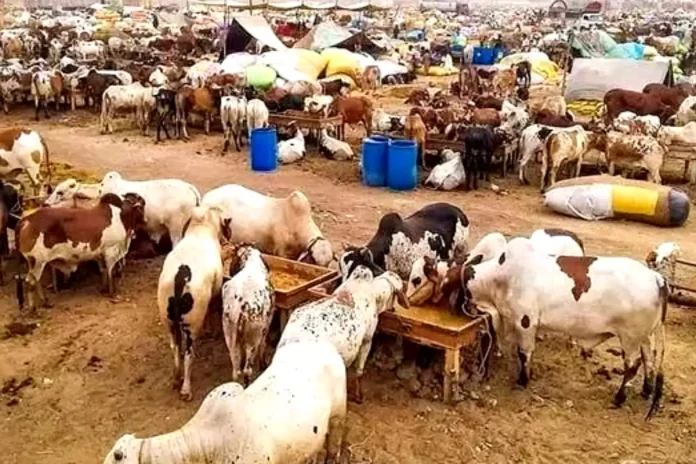- Advertisement -
By Memoona Khalid
ISLAMABAD, Jun 7 (APP):: Eid-ul-Azha, one of the most significant religious festivals in the Islamic world, commemorates the spirit of sacrifice and devotion. As Eid-ul-Az is on its peak amid intense heat, the focus turns not only to sacrifice and devotion, but also to growing concerns over animal welfare, public safety, and ethical practices, often overlooked in the festive rush.
In urban areas especially, the buildup to Eid can turn chaotic, with overcrowded mandis (animal bazaars), poorly handled animals, and a rise in incidents involving both human injuries and animal distress. Many animals are purchased too early and kept in unsuitable conditions, while children, often unsupervised, crowd around and provoke them. Additionally, unethical practices such as stuffing animals with cotton or using fake teeth to deceive buyers are still common. In many unfortunate cases, even pregnant animals are unknowingly sacrificed.
A religious scholar, Maulana Zamir ul Hassan, highlighting the core essence of sacrifice, said,
“Brothers and sisters, remember, treating animals with kindness is not just compassion, it’s a religious duty. For your sacrifice to be accepted by Allah, the animal must be healthy, well-cared for, and treated with respect. Sellers must uphold ethical practices to earn a truly halal livelihood. This is not just business, it’s worship.”
Huzaifa Malik from Islamabad who has come to purchase a sacrificial animal in market emphasized the importance of keeping children close and maintaining distance from animals, especially in crowded mandis where aggressive behavior is often triggered by noise and teasing. He stated, “Children should be supervised, because they can provoke animals unintentionally.” Similarly, Moazma Qaism another buyer in Multan’s mandi said, “We prefer visiting mandis early in the morning when animals are calm. Children can be harmed in such chaotic environments.” Both individuals observed that aggressive animal behavior is often linked to discomfort, overcrowding, and lack of control. They also stressed the need for checking animals for infections and calmness before purchasing, while noting that awareness on animal welfare still remains limited and should be amplified through campaigns.
Dr. Arsalan Rana, an animal health expert from Islamabad, highlighted that urban environments pose serious challenges to animal well-being. “Most animals suffer from stress, dehydration, and infections due to heat and poor handling,” he explained. He warned that extreme weather can cause animals to collapse or become aggressive. Regarding fraudulent practices like fake teeth or cotton stuffing, Dr. Rana called them “deeply unethical,” urging buyers to consult vets or look for physical signs of alertness, clean skin, and good mobility in animals. He emphasized, “Animals are part of a sacred act, not a commodity to exploit.”
Ali Shahid, mandi monitoring in-charge in Bahawalpur, discussed the efforts and challenges of managing safety and fairness during Eid season. “We have trained handlers, fenced enclosures, and make announcements to prevent accidents, but public cooperation is crucial,” he said. He acknowledged that fraud is hard to fully eliminate due to limited staff and buyer hesitation to report. Though vet camps exist in larger mandis, not every buyer takes advantage of them. Shahid further added, “We advise families to avoid bringing small children during peak hours, and we hope to implement timed entries in the future to control overcrowding.”
One victim shared, “A bull broke free at the mandi and fractured my arm. Despite warning signs and restless behavior, there was no crowd control or seller intervention. No barriers or officials were present, and I had to pay for my treatment.” This highlights the urgent need for better supervision, proper animal handling, and victim support.
Voices from the community call for urgent action: raise awareness on animal welfare and ethics; enforce strict crowd control and shaded areas in mandis; ensure trained staff and on-site veterinarians; discourage buying pregnant or stressed animals; keep children supervised; and establish a compensation system for accident victims to guarantee accountability and uphold the true spirit of sacrifice.

